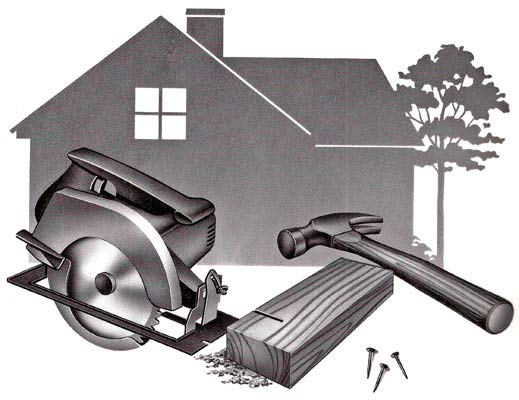
BLOG
Good Neighbor Next Door - HUD Program
Did you know there is a program out there especially for Law Enforcement, Firefighters, EMTs and Teachers?
It is called the Good Neighbor Next Door Program and it is through HUD. This program is not widely known about. The homes are not always available, but when they do come up it is a wonderful way to become a homeowner with benefits.
There are special requirements to qualify for this program, but if you do and you win one of these homes...you would get it for HALF off.
Please watch my Periscope video to learn more and if you would like to sign up for my free GNND Course, please do so here!
bit.ly/gnndhouse
Thinking of Buying A HUD Home? Part 1
Ok, so it's 2am and you can't sleep. You are flipping through mindless and endless infomercials trying to figure out why the sandman has not visited your home and you come across a commercial that says "BUY A HUD HOME FOR $1 - JUST SEND US $19.95 for a complete list of listings!" Ok, it sounds too good to be true, you figure $19.95 is not that much to spend and I was thinking I am ready to purchase home!
Let me save you the money and explain to you a little about HUD homes. There is no special list and there are homes available for a special price but buying a HUD home for $1 is a way to catch your attention and if there is one, believe me, it is only for a special group of people or organizations.
HUD homes are an excellent way to purchase your first home, heck you can even buy a HUD home if you have purchased before. HUD's are usually FHA approved which means you can obtain a loan with only 3.5% down. And in some areas, HUD runs a wonderful incentive for buyers by offering only $100 for the downpayment. Be aware, that program is not in all states and areas but it is out there! I have closed quite a few! But I digress....HUD homes are generally a good value, most of the time they are priced a little lower than the value in the area, but if it's been on the market a while and they have lowered the price a few times, you have magically walked into a bit of equity! (NICE PERK)
What is the difference between a HUD home and a foreclosure. Not much really...a HUD home is a home that was financed by a government loan and if someone lost a home, they buy it back from the lender so it becomes a government home. Foreclosures are generally, not not always, homes purchased with a conventional loan.
Buying a HUD is a bit different. There is a bidding period. You will need a registered real estate agent to perform the process for you. (Shameless plug....contact me at Laura.A.Key@gmail.com) You do not know how many bids are in the system and once the bidding process is done and you are determined the winner, you will be on a timeline to get the paperwork into the correct people.
But Laura, my Realty Goddess....what about the $1 HUD homes? There are special programs out there to help non-profits and special people who serve our community. The $1 homes (if any) are usually presented to the non-profits. The special programs are usually offered to the following: Police Officers, Teachers, EMT's and Firefighters. Those homes are won on a lottery bidding system.
*This ends Part 1 of "Thinking of Buying a HUD Home" tune in to the next episode where we will discuss the bidding progress and steps to closing the deal.
Contact me with any questions you may have! Laura.A.Key@gmail.com
*By Laura Key, please do not use without permission.
Loans for Fixer Uppers
Low housing inventory has resulted in a lack of move-in ready homes available for sale. Many buyers, especially first time buyers, tend to overlook properties in need of extensive repairs, but a federally backed lending program enables buyers to roll the cost of necessary repairs into their mortgage, which can sometimes yield a quick return on investment.
Making sense of the story
- The Federal Housing Administration’s 203(k) program provides for loans that cover purchase and renovation costs for single-family homes and multifamilies with up to four units. The total loan amount is based on the property’s appraised value once the repairs are completed. The down payment requirement is 3.5 percent.
- FHA 203(k) loans are not available to investors – borrowers must live in the properties. But some borrowers have used a 203(k) loan to buy and renovate a multifamily property, live in the property for a year or so, refinance into a conventional loan, and then sell the rehabbed property.
- The loans are more expensive than conventional financing, because the interest rates are slightly higher and private mortgage insurance is required.
- Additionally, borrowers must pay a building consultant, who writes the initial estimate of the cost of planned repairs. Fees range from $400 to $1,000, depending on the extent of the repairs. The consultant also ensures that the repairs will bring the house up to government health and safety standards.
- The loans do not cover the addition of luxury items, such as a pool. But allowances are made toward the cost of repairing or removing a pool, as well as for the addition of solar panels.
- Renovations must be made within six months after closing. The contractor is paid in intervals after periodic inspections of how the work is progressing. Borrowers should make sure they hire experienced contractors who understand that they won’t be paid upfront and must adhere to strict timelines.
For more information contact Laura Key, Real Estate Agent at Laura.A.Key@gmail.com
www.KeyCaliforniaHomes.com
Source: New York Times By LISA PREVOST Published: January 17, 2013

